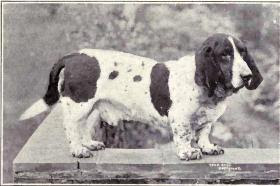I think one of the reasons why people seem to find it hard to think rationally about the RSPCA is the sheer scale of the numbers.
The National Control Centre takes over a million calls every year.
The national RSPCA's income is just over a hundred million pounds in the same period.
That means roughly £100 is available to deal with each incident. That's just enough to spay a large-ish bitch at a fairly inexpensive vet, to keep her in boarding kennels for 20 days, or to cover the consultation fee for out of hours treatment at an emergency vet. Usually when a dog needs help urgently all three of those will be necessary.
If each call represented a request to take in an unwanted animal there is no way that could be done.
Similarly with donations; which are probably the most likely to take a hit from the "I will never give another penny to the RSPCA and I'll tell all my friends" brigade. The National Society organises door-to-door collections asking donors to set up direct debits. Proceeds from this are split 50/50 between them and the individual branches, meaning each branch gets roughly £12,000 each year—usually representing around 10% of a branch's total income.
The total amount raised by the collections is just over four million pounds—a very large amount; comparatively small once it's been spread across 174 branches, but a 10% decrease in funding would be a very big blow to a branch.
If the door-to-door fund-raising took a serious hit we'd have to make cutbacks—probably increasing the charges for treatment at our clinic and stopping help for owners who find even our subsidised rates very difficult to afford.
Our clinic treats roughly 2,000 animals each year, which probably represents around 4,000 families in Cambridge and the surrounding area who have their pets registered with our clinic at any one time. That's something like 2% of the population, and losing the clinic would mean extra financial hardship for these local people. Many, possibly most, of them would stop getting routine preventive veterinary care for their pets and just hope for the best until something catastrophic happened.
To give some perspective on the amount of money available to run the RSPCA as a 24/7 service for all of England and Wales:
The proposed
NHS efficiency savings in the forthcoming budget would run the whole of the RSPCA for ten thousand years (yes - that's the figure for the
savings, not their actual budget).
The
Cambridge University's income from former students' donations (relatively small change from their point of view) would run the RSPCA for five thousand years. It has
six times as many staff as the RSPCA.
These figures are so big that at some point most people's eyes just glaze over, but without trying to grasp them there's no way to think sensibly about the big animal charities which are providing services to the animal population.
The RSPCA saves
95% of healthy or treatable cats taken in to its shelters. It would be a tragedy if that record was destroyed by people who aren't capable of running the proverbial whelk stall.











































